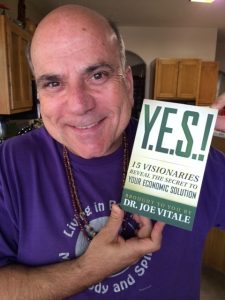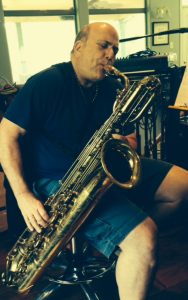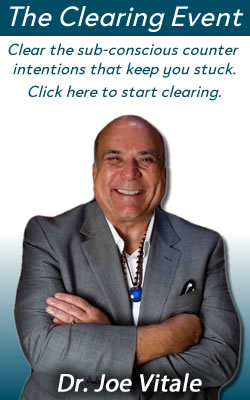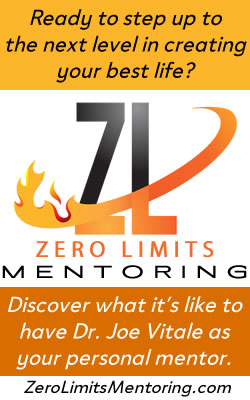Tag: attract wealth
A Formidable Partner
One of my greatest passions and ongoing commitments in life is Operation Y.E.S. (Your Economic Solution) – a platform to end homelessness by helping people create their own economic solution.
Fortunately, I don’t do this alone.
In fact, I have some formidable partners as committed as I am. One of them is the State Homeless Coordinating Committee for Utah.
They’re on it, you might say.
Since 2005, when they enacted their Ten Year Plan to End Chronic Homelessness, they’ve seen a decline of 74%.
That’s impressive.
In fact, it’s put Utah “at the forefront of the national effort to end chronic homelessness by 2015.”
Part of their success has come from their early adoption of the Housing First program, which offers housing without bias to the chronically homeless.
This means that instead of placing people into transition housing and requiring their participation in certain programs (such as for substance abuse or mental illness) before they can receive more help, Housing First recognizes housing as a basic right.
The homeless get off the streets first.
The homeless are given a place to live first.
What Utah discovered is that meeting this need increases stability – which in turn supports real change.
Oh, and it saves money — money the state (as taxpayers) would otherwise spend on emergency services and jail.
It’s a win-win.
But it’s not just the chronically homeless that benefit.
They’ve found that by focusing on this particular group it “improves coordination and planning for housing and services for all of the homeless.”
Call it a “trickle-down” effect.
Since families with children are often the victims of homelessness, I applaud this.
Unfortunately, it’s children who suffer exponentially when exposed to this kind of traumatic experience.
According to Utah’s 2013 Comprehensive Report on Homelessness, “Children are particularly vulnerable to the adverse effects of homelessness. Homelessness often interrupts schooling and the development of positive peer and mentoring relationships. Homeless children frequently experience dangerous or unhealthy environments and may be more likely to experience homelessness as an adult.”
I believe education is a key to ending homelessness, both for the ones experiencing it and those who are not. Having faced it myself, I know that a major stumbling block resides in the many myths surrounding it.
Not surprisingly, Utah’s got that handled, too.
In their report, they identified the top four myths:
Myth #1 – People who are homeless stay homeless for a long time.
False: Only about 3% are considered chronically homeless.
Myth #2 – Most are single men.
False: Only 29% – the largest number are parents and children.
Myth #3 – The homeless population is transient, migrating to cities with the best services.
False: Nearly 90% were in Utah when they became homeless.
Myth #4 – They are to blame for their situation.
False: Many come from situations of abuse, illness and trauma.
In my own efforts to end homelessness and help people become self-sufficient and empowered through education, I started “Operation YES.”
With the help of Craig Perrine, we did a series of interviews with some amazing people who offered their expertise and know-how towards this mission. This series later became a manual called Operation Y.E.S.: Your Economic Solution.
Essentially, Operation YES is a 3-part formula designed to help people see beyond the limitations and the traditional categories. It’s all covered in detail in the manual, but the simple version is:
1. Raise or rebuild your self-esteem
2. Think like an entrepreneur
3. Leverage the Internet
If you have a desire to be a part of the solution to end homelessness, you can get your own copy of the manual at no charge at http://www.OperationYes.com
Oh, and if you’re traveling this summer, I hope you’ll stop in Utah.
Let them know they’re doing great things there…:-)
Ao Akua,
Joe
PS — If you prefer a printed copy of “Operation YES,” it is available at Amazon for a small investment: http://www.amazon.com/Y-E-S-Visionaries-Reveal-Economic-Solution/dp/1499615426/
Resource: http://www.impacthomelessness.org/resources/docs/eis/Utah-Report-on-homelessness2013.pdf
You, the Sign
I’ve written about signs before.
I’ve explained that there are “flags” in life that give you clues to move forward, pause, or stop.
Green signs or flags mean keep going, yellow signs mean slow down and reflect, and red flags mean stop.
I look for signs all the time, to confirm my direction, or to warn me to reconsider, or to come to a complete halt.
These signs can be anything, from a line in a book to a street sign with a double meaning to a dream to a statement by a friend or from a movie character, or anything else.
But what if the sign is you?
Yes, you.
Let me explain with a story…
I’ve been practicing the saxophone this year and loving it.
So far I have three vintage saxes: an alto, tenor, and baritone.
I know that Selmer made some highly collectible horns for around twenty years. They are called Mark VI and the prized ones have serial numbers from 53201 to 236000. They are considered the Holy Grail of saxes.
While I have two Selmer vintage saxes, I don’t have a baritone sax (which is what I play) from that specific golden era.
But one showed up on eBay.
I stared at it, researched it, considered it, wrote the owner a few questions about it, and more.
I also double checked the serial number on the sax to be sure it was from that magical Selmer period.
It matched.
But I couldn’t bring myself to buy it.
That troubled me.
I kept meditating on the purchase, cleaning internally on any doubts or concerns or uncertainties, but I couldn’t get a resounding yes to actually buy it.
I constantly looked for signs to buy it.
Nothing.
And – believe it or not – I even tried to force a sign from the Universe by consulting an I Ching app, an angel app, and a Magic 8 Ball app.
All said no.
Those were silly apps, I thought, so I was willing to dismiss them.
But I couldn’t.
They were signs.
But the biggest and strongest sign I was getting was from me.
And that sign was also saying no.
I kept feeling — for some unexplained reason — that I shouldn’t get this saxophone.
But I wanted the sax.
I could afford the sax.
I knew the sax was pristine and collectible. Even at the seller’s opening asking price of $10,000 (and his appraised price of $15,000), I could rationalize investing in it. The horn would only go up in value.
But my whole body wouldn’t let me go there, to actually buying it.
I even got to the point where I typed in my bid on eBay, trying to override all the signs, but as my finger hovered over the key to make the $10,000 bid a permanent contract to buy the sax, my body said “No.”
What!?
It was strange.
My mind said yes – at least part of my mind – but the rest of me said no.
I was confused.
But I knew to trust the signs.
When you don’t trust the early warning signs, you can end up regretting something.
Since the sign was me, and it/I was saying “red flag,” I passed on the sax.
I trusted that it wasn’t for me, for reasons I may never know.
The auction ended.
I watched someone buy it for $10,000.
Gone.
Sigh.
What happened?
I had attracted the sax into my life for a reason, but apparently the reason wasn’t to own it.
So what was the reason?
Over the next day, I reflected on why I wanted that sax.
As I meditated on it, I knew that the case the sax came in was original and complete.
The case I have, for my vintage 1952 Super Balanced Action Selmer baritone, is missing the handle.
I want a handle.
So I wrote to Chadd Berry at Worldwide Sax and asked if he could get me one.
He said yes, and did.
Green light.
That was a great sign.
I also realized that the sax for sale came with a metal mouthpiece.
I’ve learned enough about the sax to know the sweet sound comes from the mouthpiece, the reed, and the player. The sax itself just amplifies the sound, which you manipulate mostly with the keys. Some sax players spend a fortune on collecting boxes of mouthpieces, desperately looking for the right one for them.
I wanted a metal mouthpiece.
I did some research, determined one that could work for me, and ordered a gold one.
Green light.
That felt great, too.
Getting the gold mouthpiece (as well as the case handle) was easy, effortless, and almost instantaneous.
That’s how this process is supposed to work when all the flags are green.
And guess what?
I now felt complete.
It’s almost as though I were drawn to the sax on eBay to more deeply connect to my inner compass, and to further my sax playing by getting a metal mouthpiece, not an entire sax, to improve my playing.
For the record, both pieces arrived and work perfectly.
The vintage case is easier to look at and carry with a new handle, and my sax playing is smoother and easier with the gold metal mouthpiece.
And rather than spending $10,000 (or more), I spent less than $1,000 and got everything I needed.
The lesson here, as I see it, is that you have to pay attention to your entire energy system.
If your mind says yes but most of the rest of you says no, that’s a sign.
Explore it.
What is it here for?
Question it.
What could it mean?
Trust it.
You are the sign.
Trust you.
Ao Akua,
Joe
PS — A great way to fine tune your inner compass is with a trained objective person. Maybe see Miracles Coaching.
PPS — My favorite modern sax player is Mindi Abair. I’m going to have a private sax lesson with her tomorrow, which I am very excited about. She plays the alto sax rather than the baritone, but boy can she play! Her new album, Wild Heart, is a jazz-rock-sax masterpiece. Here’s a taste of her sound from a live performance a while back:
Where's the Money?
“Where’s my five million dollars?”
“Did you lose five million dollars?”
“No, I’ve been trying to attract it.”
“Where do you think it is?”
“It isn’t here so it must be with you and all the other rich people.”
“What are you doing to attract the money?”
“I’m visualizing it like you and others teach.”
“That’s a nice start. But what are you doing to attract it?”
“I just want to attract it.”
“But how do you expect it to come to you if you don’t actually do something to attract it?”
“I figured it would just show up at my door but so far, nothing!”
“What does it mean that you haven’t attracted that five million dollars yet?”
“It means all of this Law of Attraction stuff is BS!”
“Ah! There it is!”
“There WHAT is?”
“You said ‘It means all of this Law of Attraction stuff is BS’ which is the belief that attracted your not attracting it.”
“Give me a break!”
“You get what you believe. As I keep saying, the meaning you give an event is the belief that attracted it. You admit that you believe this Law of Attraction stuff is BS, so you attracted a reality to prove your belief.”
“But you’re saying if I believed it, I’d attract it!”
“Exactly.”
“But that isn’t true!”
“It isn’t a true belief for you, so it isn’t a true reality for you.”
“You’re making my head swim!”
“I don’t mean to. I understand, though. I used to think like you.”
“How did you change your thinking?”
“By starting with the small stuff to build my muscle of belief. I looked at my life and realized I was creating lack, so I figured I must be a good creator of my own reality but just needed to aim higher.”
“That’s it?”
“It’s easier said than done but you can start today.”
“How?”
“Maybe read my book on the subject — relax, it’s free — called Attract Money Now.”
“That’ll bring me five million dollars?”
“You’ll meet it part way. You still have to take action, act on your intuition and the opportunities you see, and take it one step at a time, but where will you be if you keep doing what you’ve been doing?”
“Complaining, I guess.”
“And what will that get you?”
“More to complain about?”
“See? You’re already learning.”
Ao Akua,
PS — You’ll get faster results with your own coach, of course. Please check out Miracles Coaching.
Brain Filters
“I’m not a fan of your books.”
“I’m not a fan of your saying that.”
“But your books don’t jell with my experience.”
“Of course they don’t. Your experience is based on your beliefs, and your beliefs don’t match my beliefs, so you naturally can’t be a fan of what you don’t believe.”
“Huh?”
“Look. Your life has been one of struggle. So when you look around, you don’t see positive things. But you are looking around through a brain filter of limiting beliefs, and those beliefs are giving you the life experience of struggle you have.”
“See? You don’t make any sense!”
“Well, if you believed in positive thinking and positive doing, and began to see the positive in what’s already around you, you would attract more positive experiences, and then you would agree with my positive teachings.”
“But that’s not my experience!”
“Exactly. Your current beliefs are attracting your current experiences. You’ll get the same thing in the future as you have in the past until you change your beliefs.”
“You’re not in touch with reality!”
“I’m not in touch with your reality. But I was once. I used to think in terms of struggle, lack, limitation and victimhood. But I spent a lot of time, money and energy to retrain my brain, so today I see and experience miracles.”
“But even if that were true, how do I change my beliefs?”
“The first step is being open to a new view of reality.”
“I’m not sure I can do that.”
“That’s a belief, you know.”
“It is?”
“Yep.”
“Then how do I become aware of my beliefs, since I don’t seem to know what they are?”
“By looking at what you have and asking, ‘What might I believe to attract that into my life?'”
“Will your books help me with that?”
“You mean you haven’t actually read them?”
“I flipped through them.”
“Yes, start with my books.”
“Which one?”
“The one you are resisting reading.”
Ao Akua,
joe
PS – Of course, the faster way to see and change your beliefs is with a trained objective person. Maybe see Miracles Coaching.
When Affirmations Fail
“Affirmations don’t work for me.”
“That’s an affirmation, you know.”
“Huh?”
“Affirmations are anything you affirm as true,” I explained. “You can affirm something positive or something negative.”
“Say what?”
“You said ‘Affirmations don’t work for me’ which is an affirmation that affirmations don’t work for you.”
“I don’t follow.”
“You get what you believe and expect,” I explained. “If you believe affirmations won’t work for you, then you will get the experience of affirmations not working for you.”
“But they really don’t work for me!”
“I know. That’s because you are affirming that they don’t work.”
“You’re confusing me!”
“Look, the meaning you give an event is the belief that attracted it. If you feel affirmations don’t work, then you are attracting experiences to prove that affirmations don’t work. If you switched it, you could attract proof that affirmations do work.”
“But how would I do that when my mind says they don’t work?”
“That’s simply what you currently believe,” I went on. “It’s your current habit of thinking. But you can begin a new habit by beginning a new thought process today.”
“It’s that easy?”
“It’s simple but maybe not easy,” I said. “But you can begin right now.”
“Affirmations do work?”
“That’s a start.”
Ao Akua,
Joe
PS – You can see your beliefs more clearly when you have a trained objective person helping you. Consider http://www.MiraclesCoaching.com














